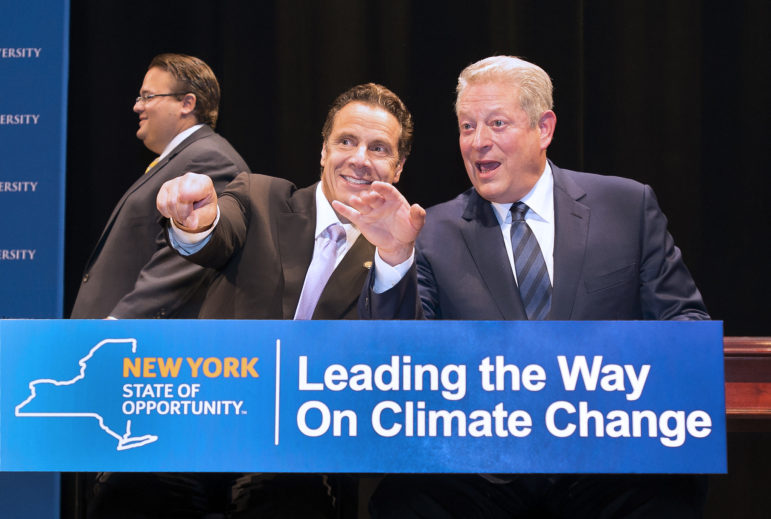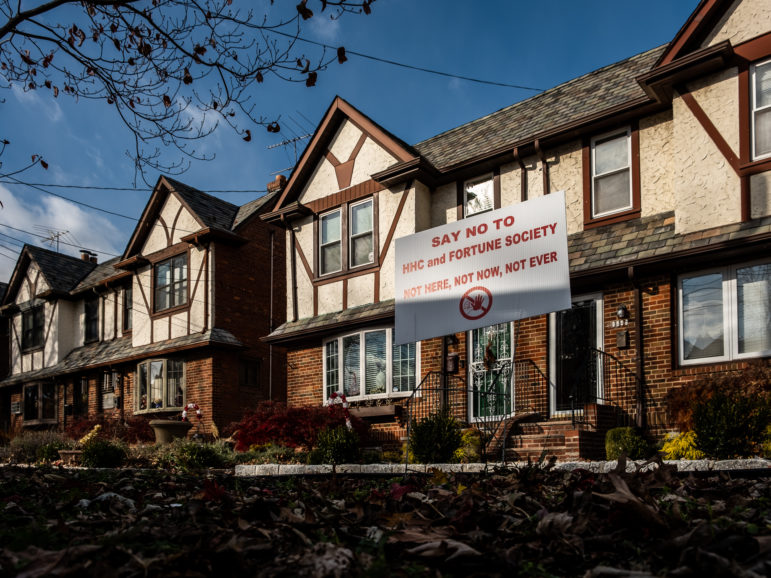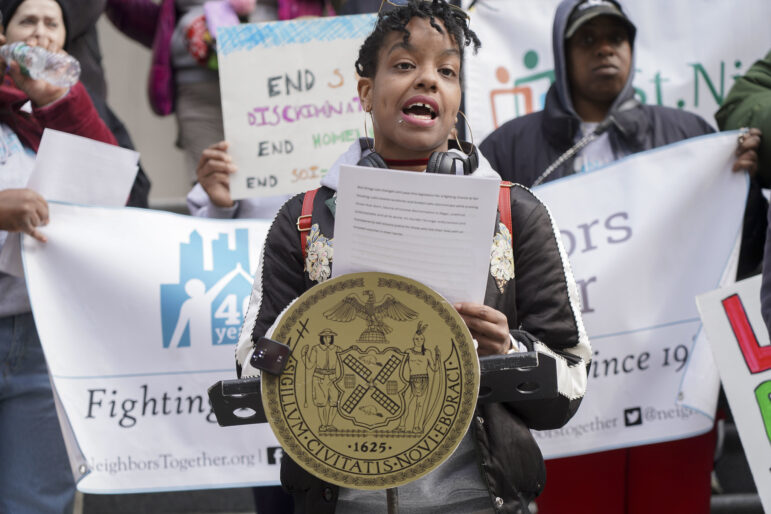
Office of the Governor
Gov. Cuomo and former Vice President Al Gore at a 2015 event. Cuomo faces a decision over the Williams Pipeline.
For months, National Grid has been trying to sell an unnecessary new pipeline to New Yorkers. The city is low on gas, utility executives suggest, and unless Governor Cuomo approves the Williams Northeast Supply Enhancement Project—a 23 mile fracked gas pipeline through New York Harbor—they’ll need to issue a moratorium on adding new gas customers in the area. “Economic growth [is] at risk,” they claimed in a recent video sent to ratepayers, before claiming that natural gas was “clean.”
Yet a recent report, authored by a former New York Department of Environmental Conservation regional director, proved that none of this is true. National Grid doesn’t need more gas—not for boiler conversions, not for new customers—nor an invasive new pipeline to deliver it.
What is problematic here isn’t so much that National Grid is making false claims; it is that politicians and some members of the public are taking these claims even remotely seriously in the first place.
Why, in other words, is a monopoly utility with only corporate shareholders to answer to setting the terms of the debate about a billion-dollar pipeline that would only add to its profits?
It’s simple: because we take for granted the regulatory vacuum in which our utilities exist. We even conflate the utilities with the regulators themselves. In a more just scenario, we would be listening to democratically-elected public institutions, not private corporations, for insight into something as essential as the energy used to heat our homes. But as it stands, the fox is giving advice about the henhouse.
And of course, no one is watching the fox. New Yorkers should be outraged to learn, for example, that not a single city, state, or federal agency has independently assessed the real need for the Williams Pipeline.
FERC, the federal agency whose “Certificate of Convenience and Necessity” Williams must have to start construction, has only assumed that need based on National Grid’s precedent agreement—its contractual promises to buy the pipeline’s gas.
On the state level, the New York State Public Service Commission—which has to approve the initial pipeline contracts—appears to have also failed to investigate need, at least to the extent that it has remained silent on the matter when it could have spoken up to ease public tension. On the permitting end, New York State has the ability to block the pipeline, but only on the basis of protecting our water, not because of a lack of need.
And as for the city, it has little legal say in the matter.
This is the regulatory blind spot that National Grid is taking advantage of to push more fracked gas on New Yorkers.
The reticence of the PSC and its equivalents across the country should concern us deeply. Nationally, these 250 utility commissioners control half the carbon in America. In New York, they are unelected Governor appointees whose anemic climate solutions all but encourage National Grid and Con Edison to dictate our energy future.
The addition of more public rate case hearings, like those proposed by Public Power NYC, would add transparency to these energy decisions. Yet Senator Kevin Parker, chair of the committee tasked with overseeing utilities like National Grid, has opposed holding these hearings in his district, helping to ensure that his own constituents have no say about rate hikes and remain ignorant about the infrastructure they go to support. It’s no coincidence that Senator Parker also supports the Williams Pipeline.
What might Senator Parker’s constituents learn at these hearings? Maybe that National Grid’s latest claim—that the rate increases they’re proposing for New York City residents (an average cost of $16.50 per month) would need to be even higher if the pipeline is rejected—is completely false: the pipeline would allow National Grid to raise rates, not lower them, since they could pass the pipeline’s billion-dollar costs right along to consumers.
We are playing with fire here. As the NYSDEC itself has warned, the Williams NESE Pipeline would obliterate any chances of meeting state emissions reduction goals, and all while contributing to more climate change-fueled storms like Hurricane Sandy.
Given this potential impact, the burden of proof should be on the private utilities claiming that the pipeline is needed, not on public non-profits and independent researchers, who have already shown so clearly that it isn’t.
So far, National Grid has balked; when asked to provide their research on gas need, they claimed it was proprietary information. Tellingly, they also haven’t addressed a single one of the refuted claims mentioned in the report above.
Without rigorous proof of need, the Williams Pipeline cannot and should not be approved by Governor Cuomo. In this era of climate catastrophe, our future cannot be entrusted to monopolies. It is a public good, and we should treat it like one.
Robert Wood is an organizer with the climate action group 350Brooklyn. Aaron Eisenberg is a climate activist with the NYC Democratic Socialists of America.









5 thoughts on “Opinion: Cuomo Shouldn’t Let a Monopoly Decide the Fate of the Williams Pipeline”
Pingback: There's no room for the Williams fracked gas pipeline in the Green New Deal | 198 methods
Pingback: National Grid Asks Customers to Help it Lobby for a New Fracked Gas Pipeline – Sludge – Texas Nurse Practitioner News
Pingback: National Grid Asks Customers to Help it Lobby for a New Fracked Gas Pipeline – Sludge | @readsludge | Actify Press
Pingback: National Grid Asks Customers to Help it Lobby for a New Fracked Gas Pipeline – Sludge | @readsludge
Pingback: National Grid Asks Customers to Help it Lobby for a New Fracked Gas Pipeline – The American Prospect – Texas Nurse Practitioner News